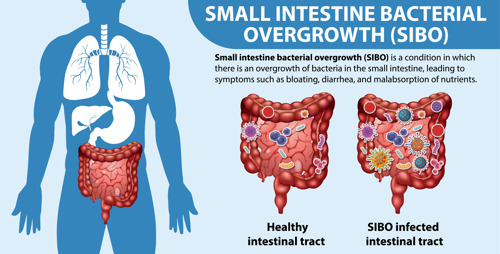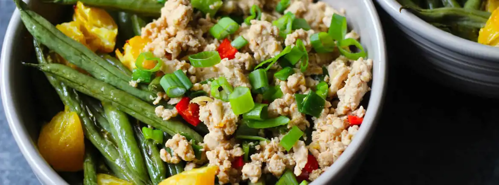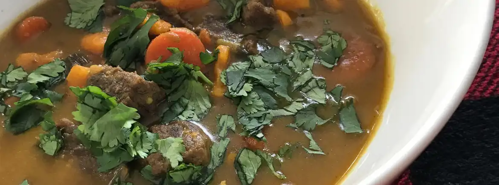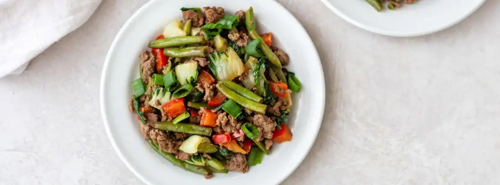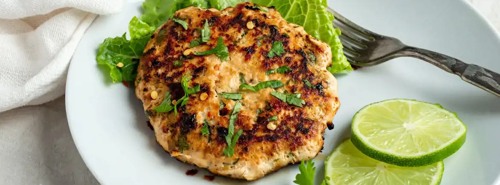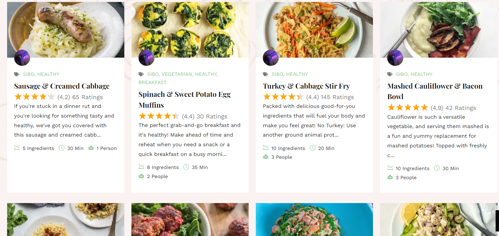A Brief Look at Common SIBO Symptoms
Countless individuals experience SIBO symptoms that disrupt their lives and well-being daily. Symptoms like bloating, belching, fatigue, or even
mysterious weight changes can often go unnoticed or unexplained. Little do
many know that these seemingly unrelated discomforts may share a
common underlying cause: Small Intestinal Bacterial Overgrowth (SIBO).
What is SIBO and how does it happen?
SIBO, or small intestinal bacterial overgrowth, is when there’s an excess of bacteria in the small intestine. Normally, the small intestine has fewer bacteria compared to the large intestine, but sometimes things get out of whack. This can happen due to issues like decreased intestinal motility, which means food and waste aren’t moving through your gut as they should. When that happens, bacteria can multiply and cause a bunch of digestive woes.
What are the common SIBO symptoms?
SIBO symptoms might include things like bloat, diarrhea, and sometimes even constipation. You might also feel abdominal pain or discomfort, and some people report feeling nauseous. If you’ve got irritable bowel syndrome (IBS), you might find that these symptoms flare up more often. Just remember, everyone’s different, so symptoms can vary widely from person to person.
How do you diagnose SIBO?
To diagnose SIBO, doctors often use tests like the lactulose breath test or the glucose breath test. These tests measure the amount of hydrogen or methane in your breath after you consume a specific sugar. If bacteria are overgrowing in your small intestine, they’ll produce these gases, which will show up in your breath. Super neat, right? Your symptoms and medical history will also play a role in the diagnosis.
What causes SIBO?
The causes of SIBO can be quite varied! Some common culprits include certain medical conditions that disrupt the normal functioning of your gut, like diabetes or IBS. Medications that affect gut motility or your gut flora can also lead to bacterial overgrowth. Additionally, anything that affects your gut's anatomy—like surgery or structural issues—can predispose you to SIBO.
Do You Struggle With Any of These Symptoms? You Could Be at Risk of SIBO.
Do You Suffer From Bloating or Stomach Distention?
Bloating and stomach distension are caused by the hydrogen and methane gases produced by SIBO.
Do You Suffer From Belching or Burping?
Belching or burping can be caused by SIBO when the excess bacteria in the small intestine produce gases as they ferment undigested carbohydrates, accumulating gas released through burping, causing discomfort and bloating.
Do You Suffer From Stomach Pain/Cramps?
In SIBO, the small intestine can become pressure-sensitive, causing stomach cramps.
Do You Suffer From Chronic Constipation?
An overgrowth of bacteria in the small intestine can interfere with the coordinated contractions and movements required for smooth stool passage.
Do You Suffer From Chronic Diarrhea?
When bacteria overgrow in the small intestine, the normal absorption of nutrients and electrolytes can be disrupted, resulting in watery stools.
Do You Suffer From Abdominal Weight Gain?
SIBO is a condition that can interrupt the usual digestion process, resulting in a lack of absorption of vital nutrients. This can cause a deficiency of nutrients and an increase in the desire for high-calorie foods.
Do You Suffer From Weakness or Weight Loss?
When there are too many bacteria in the small intestine, they can 'steal' the nutrients from the food you eat. This can cause your body to miss essential vitamins and minerals, leading to weakness and weight loss.
Do You Suffer From Anxiety or Depression?
Many studies suggest that a high percentage of people with this condition also experience anxiety or depression (54%-100%)
Do You Suffer From Anemia/Fatigue?
In SIBO, the excess bacteria can snatch away essential nutrients, leading to deficiencies that result in symptoms of anemia and various health issues
Do You Suffer From IBS?
Studies show that over 65% of people with IBS have small intestinal bacterial overgrowth (SIBO)
Do You Suffer From IBD (Crohn's/Ulcerative Colitis)?
Many studies have found a link between IBD, which includes Crohn's Disease and Ulcerative Colitis, and SIBO. Both conditions share a common factor: a leaky gut.
Do You or Have You Suffered From Infectious Disease?
Certain conditions can disrupt the natural gut environment, increasing harmful bacteria in the small intestine. On the other hand, SIBO can also make people more vulnerable to infections due to its effect on the gut's immune system.
Do You Suffer From Other Diseases?
When a person experiences a disease that disturbs the body's normal functioning, it can cause various physiological and biochemical changes, such as inflammation. This can lead to excess cortisol production by the adrenal glands, an anti-inflammatory hormone.
Do You Suffer From Joint Pain?
SIBO can cause a 'leaky gut' by releasing substances that loosen the junctions between intestinal cells.
Do You Suffer From Brain Fog?
In brain fog, reduced cognitive recall (slow functioning of the frontal lobe) from slowed nerve conductance due to inflammation caused by a stimulated immune system has been shown in patients with SIBO.
Do You Suffer From a Brain Disorder?
SIBO triggers the immune system, leading to inflammation. This inflammation can extend to the brain through the 'leaky gut' created by SIBO, potentially contributing to neurological issues.
Do You Suffer From Skin Problems?
Skin problems like psoriasis, eczema, acne, rosacea, and hives can be linked to issues in our gut, particularly small intestinal bacterial overgrowth or SIBO.
Do You Have Food Allergies/Intolerances?
An allergy reflects immune system dysfunction (weakened immune system) and a hormonal imbalance rather than the consequence of allergen exposure and absorption.
Do You Suffer From Fibromyalgia?
Testing for SIBO is paramount in FM patients. Many studies show that 100% of FM patients have SIBO.
Do You Suffer From Chronic Fatigue Syndrome (CFS)?
Studies indicate that individuals with CFS often have significant changes in their gut bacteria, including lower levels of beneficial bifidobacterial species and an increased presence of SIBO.
Do You Suffer From Restless Leg Syndrome (RLS)?
When someone has SIBO or harmful bacteria in their gut, these microorganisms use iron to grow. The inflammation caused by SIBO can result in higher levels of hepcidin. Hepcidin is a key regulator of iron metabolism in the body.
Do You Suffer From Halitosis (Chronic Bad Breath)?
Rotten egg-smelling breath due to sulfur-reducing bacteria in the small intestine forming H2S. H2S is a 3rd form of gas which is found in SIBO patients.
Do You Suffer From Hypothyroidism?
Low thyroid function is linked to low ATP (energy) production, which is required to make stomach acid. Low stomach acid (hypochlorhydria) is one of the culprits in acquiring SIBO.
Do You Suffer From a Hiatal Hernia?
Hiatal Hernia (HH) can shut down digestion, accumulating undigested food in the stomach. This undigested food can sit in the stomach, rotting for many hours, causing gas buildup.
Does Your Digestion Improve When Using Antibiotics?
Antibiotics for non-SIBO purposes can improve digestion and reduce symptoms in SIBO patients.
Have You Suffered From Recent Food Poisoning?
An episode of acute gastroenteritis (food poisoning) can significantly disrupt the normal functioning of the intestinal tract, particularly the migrating motor complex (MMC), a muscular process that propels food
through the digestive system.
The Hidden Dangers of Low Stomach Acid
 For those eager to uncover the intricate workings of SIBO and its connections to low stomach acid, we invite you to download the "The Hidden Dangers of Low Stomach Acid" e-Book. This e-Book will open your eyes to many symptoms of SIBO and briefly describe how it is connected along with treatment options available.
For those eager to uncover the intricate workings of SIBO and its connections to low stomach acid, we invite you to download the "The Hidden Dangers of Low Stomach Acid" e-Book. This e-Book will open your eyes to many symptoms of SIBO and briefly describe how it is connected along with treatment options available.
Click Here to Download The Dangers of Low Stomach Acid!
5 Delicious Recipes to Help Manage Your SIBO Symptoms
Dealing with SIBO symptoms? You're not alone.
Small intestinal bacterial overgrowth (SIBO) can be a real pain - literally.
But here's the thing: what you eat can make a huge difference.
I've been there, battling bloat and bowel issues.
It's no fun, but I've found some game-changing recipes that actually help.
SIBO is all about too much bacteria in your small intestine.
It messes with your gut, causing all sorts of issues.
Symptoms of SIBO? Think bloating, diarrhea, and sometimes even constipation.
Not to mention the risk of malnutrition.
But don't worry, I've got your back.
I'm about to share 5 recipes that are like kryptonite for SIBO symptoms.
These dishes aren't just delicious - they're designed to be gentle on your gut.
We're talking low FODMAP, nutrient-rich meals that won't trigger your symptoms.
From zesty turkey bowls to comforting beef stew, we've got options.
Each recipe is a step towards better gut health.
And the best part? They're easy to make and actually taste good.
No more bland, boring "safe" foods.
These recipes prove you can eat well while managing SIBO.
Ready to give your gut a break and your taste buds a treat?
Let's dive in and discover how these 5 recipes can help you tackle your SIBO symptoms head-on.
Citrus Spiced Turkey Bowls: A Zesty Solution for Treating SIBO
Ever felt like your SIBO symptoms were ruling your life?
This turkey bowl might just change the game.
Here's why it's a winner for your small intestine:
- Lean protein? Check.
- Low FODMAP veggies? You bet.
- Citrus kick? Absolutely.
It's like a party in a bowl, minus the digestive drama.
The citrus helps break down the turkey, making it easier on your gut.
Plus, it's packed with nutrients your body craves when dealing with SIBO.
No garlic or onion here - we're keeping it SIBO-friendly all the way.
Want to try it? Click Here link and give your taste buds (and your gut) a treat.
Turmeric Beef Stew: Comfort Food with Anti-Inflammatory Benefits
Comfort food that doesn't hate your gut? Sign me up.
This turmeric beef stew is a game-changer for SIBO symptoms.
Here's the deal:
Turmeric is like nature's anti-inflammatory superhero.
It can help calm the chaos in your small intestine.
The beef? It's a solid protein source that won't upset the bacterial balance.
And let's talk about that rich, hearty broth.
It's soothing for your bowel and packed with nutrients.
No beef broth? No problem. We've got alternatives that keep it SIBO-friendly.
This stew might just become your new go-to when SIBO symptoms flare up.
Curious? Click Here and see for yourself.
Citrus Shrimp: A Light, Refreshing Option for Sensitive Stomachs
SIBO got you down? This citrus shrimp might perk you up.
It's light, it's fresh, and it's easy on your small intestine.
Here's why it works:
- Shrimp is a lean protein that's gentle on digestion.
- Citrus helps break down the protein, making it even easier to handle.
- It's low in FODMAPs, so it won't feed the bad bacteria.
The best part? It tastes like summer in a bowl.
No heavy sauces or complicated ingredients here.
Just clean, simple flavors that won't aggravate your SIBO symptoms.
Ready to give it a shot? Click Here and see how easy it is to make.
One-Pan Beef & Vegetables: Simple Cooking for Complex Digestive Issues AND Vitamin Deficiencies
Living with SIBO is tough. Cooking shouldn't be.
Enter this one-pan beef and veggie wonder.
It's a lifesaver when you're dealing with SIBO symptoms but still need to eat.
Here's why it's awesome:
- One pan = less stress (and fewer dishes)
- Lean beef provides protein without overloading your system
- Carefully chosen veggies that won't upset your small intestine
It's like a balanced meal in a pan, designed for people with SIBO.
No fancy techniques or hard-to-find ingredients.
Just good, solid food that helps manage your symptoms.
Intrigued? Click Here and simplify your SIBO-friendly cooking.
Ginger Cilantro Salmon Burgers: A Flavorful Fish Option for Gut Health
Think burgers are off-limits with SIBO? Think again.
These salmon burgers are a gut-friendly flavor bomb.
Here's the scoop:
Salmon's omega-3s can help reduce inflammation in your gut.
Ginger? It's like a soothing massage for your digestive system.
And cilantro adds a fresh kick without upsetting the bacterial balance.
No buns needed - we're keeping it low-carb and SIBO-friendly.
It's a powerhouse meal that actually tastes good.
And bonus: it might help with those pesky SIBO symptoms.
Ready to upgrade your burger game? Click Here and get cooking.
Want even more recipes to reduce your risk factor for SIBO?
Check out our specially chosen collection of dozens of even more incredible SIBO recipes by clicking here!
Mastering SIBO Symptoms Through Mindful Eating plus Targeted Diagnosis and Treatment
Living with small intestine bacterial overgrowth (SIBO) can be a real challenge. From dealing with bloat and abdominal discomfort to managing diarrhea or constipation, the signs and symptoms of SIBO can significantly impact your quality of life. But here's the good news: with the right approach to diet and treatment, you can take control of your gut health.
These dishes are designed to support proper intestinal motility and reduce the risk of bacterial overgrowth in the small intestine. By incorporating these meals into your routine, you're not just eating – you're actively participating in your SIBO treatment.
Remember, diagnosis of small intestinal bacterial overgrowth often involves hydrogen breath tests or glucose breath tests, and treatment may include antibiotics, probiotics, or even an elemental diet in some cases. However, diet plays a crucial role in managing symptoms and preventing SIBO recurrence. The low FODMAP diet, for instance, has shown promise in reducing gastrointestinal symptoms associated with SIBO.
It's important to note that SIBO can lead to malnutrition and vitamin deficiencies if left untreated. That's why a holistic approach, combining medical treatment with dietary changes, is often the most effective strategy. Whether you're dealing with hydrogen-dominant SIBO, methane-dominant SIBO, or a mix of both, these recipes can be a valuable part of your management plan.
As you continue on your journey of living with SIBO, remember that everyone's experience is unique. What works for one person may not work for another. Stay in touch with your healthcare provider, be patient with your body, and don't hesitate to adjust your approach as needed. With persistence and the right tools – including delicious, gut-friendly recipes – you can successfully manage your SIBO symptoms and improve your overall digestive health.
More SIBO and Gut Health related articles on Viva Fresh Food
SIBO Diet: 28-Day Meal Plan for Small Intestinal Bacterial Overgrowth
The Hydrogen Sulfide Connection: Understanding Your Gut's Secret Gas
The Hidden Dangers of Low Stomach Acid: A Comprehensive Guide to Hypochlorhydria
Methane SIBO Foods to Avoid: Your SIBO Diet Guide
SIBO Symptoms: Understanding Small Intestinal Bacterial Overgrowth & Causes



